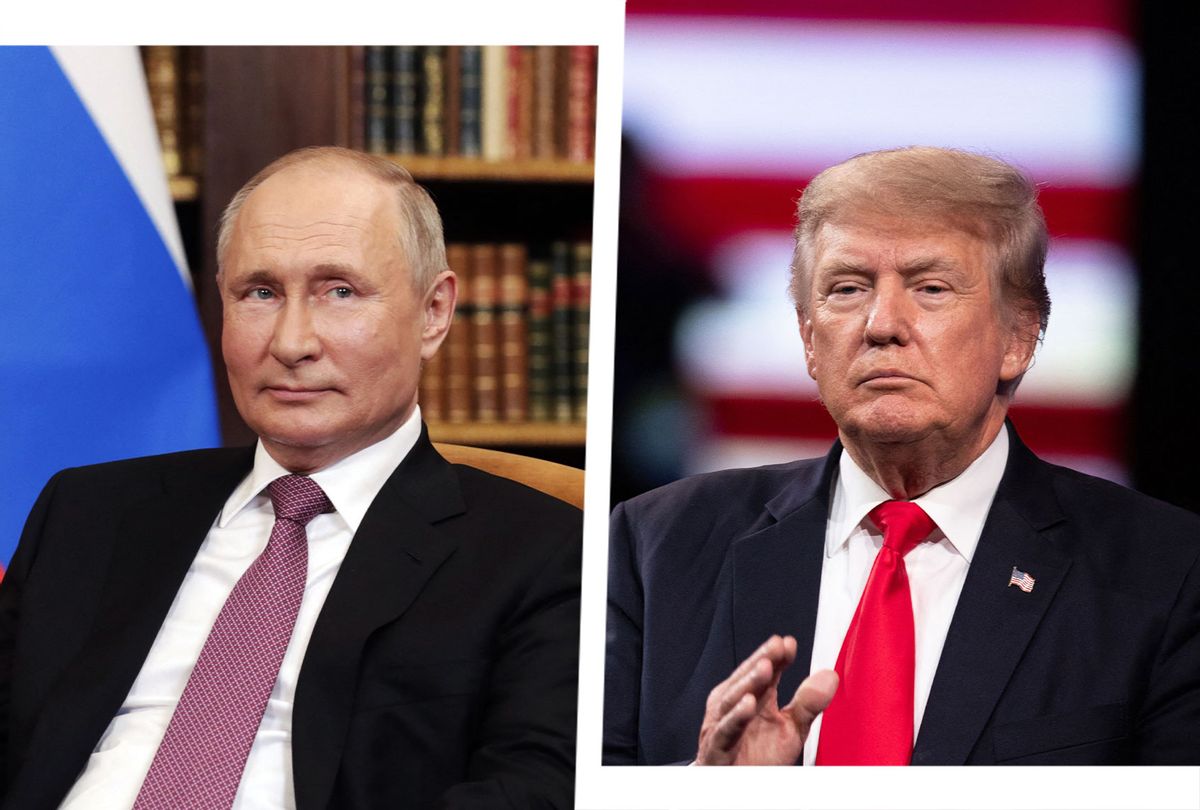Russian President Vladimir Putin personally signed off on a spy operation designed to bolster Donald Trump's candidacy in the 2016 election, hoping that a "mentally unstable" president would undermine American democracy, according to what The Guardian reports are leaked Kremlin documents. Some top international security experts in the U.S. reacted to the report, however, with cautious skepticism.
A key meeting, the materials suggest, took place on January 22, 2016 involving Putin, Kremlin chiefs, and various senior ministers. During the meeting, Putin and his officials explicitly agreed to try and install Trump on the grounds that doing so would engender "social turmoil" in the U.S. Kremlin leaders apparently regarded Trump as an "impulsive, mentally unstable and unbalanced individual who suffers from an inferiority complex" and thus the "most promising candidate." A Trump presidency, they concluded, would "definitely lead to the destabilization of the U.S.'s sociopolitical system." Recall, in 2019, Russian state TV described Trump as the "agent" and Russian Foreign Minister Sergey Lavrov as the "puppet master."
The documents also suggest that Trump himself may have visited Russia for unspecified reasons.
Putin's press secretary, Dmitri Peskov, disputed the veracity of the leak on Thursday, calling allegations that Russian leaders held the aforementioned meeting "a great pulp fiction."
The documents have not yet been verified by official sources and some experts in the U.S., like the former director of Cybersecurity and Infrastructure Security Agency under Trump, Chris Krebs, are already doubting the documents authenticity.
According to the Guardian, there is little room for doubt as to whether the January 2016 meeting was held. While an official Russian press release indicated that the meeting was geared toward the economy and Moldova, the leaked documents indicate it specifically addressed concerns regarding U.S. sanctions against Moscow.
In fact, just two weeks earlier, a meeting was convened wherein Russian senior official Vladimir distributed a brief document of recommendation on how to combat what they viewed as aggressive economic actions from Washington. The paper adduced a "deepening political gulf between left and right", America's "media-information" environment, and a burgeoning sentiment of anti-establishment under the Obama administration.
While the paper did not explicitly name 2016 presidential candidate Hillary Clinton, it did propose injecting "media viruses" that might conceivably alter the political consciousness of the American public.
To carry these proposals out, the leaked materials indicate, each spy agency was tasked with different objectives. Putin also set up an additional interdepartmental commission which tackled a "special part" of the operation.
Putin, for his part, has repeatedly denied any allegations of Russian meddling in the 2016 election despite a growing body of evidence to the contrary.
Back in 2018, The Department of Justice indicted 12 Russian intelligence officers for carrying out a hacking operation against the Democratic National Committee – an operation which led to the leak of thousands of confidential documents that may have damaged Clinton's candidacy. In 2020, U.S. Senate Intelligence Committee concluded after a federal investigation that Putin himself ordered the hacking operation. There is also strong evidence that Russia coordinated a social media misinformation campaign designed to turn American voters against Clinton.



Shares